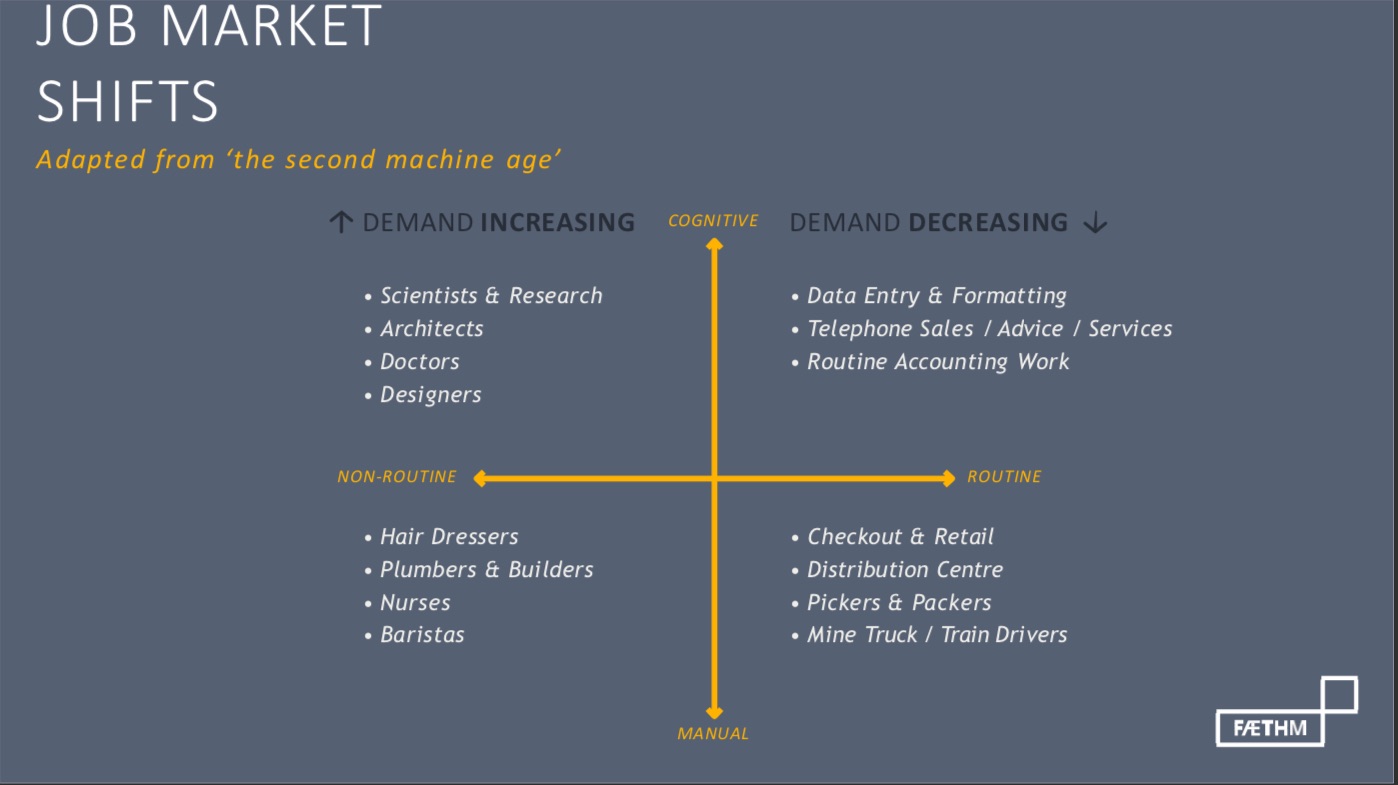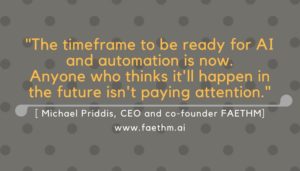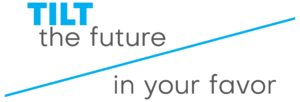
17 Oct What should my child study? Discussing AI and automation.
“But what should my child study?”
The theme was: “IMAGINING POSSIBILITIES, INSPIRING SUCCESS”. The event was Halton District School Board’s 11th annual Parent Conference. I presented a series of workshops on ‘GenZ and The Future of Work’. The focus was on how we prepare our youth; how we encourage the skills that will enable them to survive and thrive in a skill-based economy.
But the question being asked repeatedly by parents was “How do I advise my child TODAY?”
So I pulled up the FAETHM slide above.
Which jobs are threatened by AI and automation?
So many parents, educators & professionals have since asked for a copy, it must resonate in its clarity and simplicity in getting the basic message out:
- IF your work is a manual or mechanical task and you can create a template for it – it is ready for Automation (robotics)
- IF your work is a cognitive task and you can create a template or a set of rules for dealing with it – there is an opportunity for AI (Artificial Intelligence) <=== This is the area that catches most parents unawares, because components of traditionally safe middle class ‘professions’ such as accounting, medicine and law are now at risk.
So, it is not the job that we should worry about, but the task; not the industry, but the skill. And we should encourage the continuous up-skilling at all stages in our community – from child to teen through to adults and seniors.
Is it routine or repeatable?
The first time I saw this slide, Mike Priddis was presenting on the Future of Work at MaRS (the Toronto based AI hub). The infographic spoke volumes to me.
His discussion was not just around the inevitability of AI and automation, but around the discussions that we need to have on how to up-skill people ahead of when their jobs get affected.
Real people.
With real families living in real communities. Faethm works with corporations and governments. They use data to influence a different thinking and planning for the upcoming social impact of these new technologies. Automation & AI are not bad. They were designed to augment our lives:
- If you have already realized the advantages of using Gmail’s nudge or smart compose features, you are using AI.
- If you are already reliant on Alexa, Google Assistant or Siri, you are using AI.
What does this mean for Humans? What does this mean for jobs?
- ‘Humans Wanted‘ is the title of a report recently published by RBC as part of their Future Launch initiative.
- Leena Nair, CHRO of Unilever recently published an article in the World Economic Forum titled: “In the Future of Work it’s jobs, not people, that will become redundant“
- ‘We will increasingly rely on algorithms to make decisions for us, but it is unlikely that the algorithms will start to consciously manipulate us. They won’t have any consciousness.’ Yuval Noah Harari discussing AI in 21 Lessons for the 21st Century.
The key message from a cross-section of thought leaders around the topic of the Future of Work brings a message of humanity and hope in our move towards a new normal.
Progress is in our DNA, as is our fear of change.
It is in the human DNA to seek to improve and to optimize. That is why the combine harvester replaced the plow and 2 oxen. That is why we would rather use the efficiencies of a freezer and the microwave, rather than meal-prep for 3 hours.
AI and automation are just the most recent versions of this momentum.
It is also in our human nature to fear change to the status quo.
Therefore, besides and beyond the crucial STEM subjects of Science, Technology, and Math offered in schools, we in society, need to offer our young adults a different kind of Core Curriculum – one where they can develop the more human ‘C’ore skills and the tools to make good decisions and effective transitions:
Critical thinking, Communication, Confidence, Curation,
Creativity, Curiosity, Care & Community
We Parents, Guardians, Educators and Employers need to model skills to the next generation. We need to embrace change and take on continuous learning.
Staying relevant
For GenZ and Millennials, their ability to create opportunities will come from the building blocks of resilience:
- learning ‘how’ to learn
- honing skills of empathy
- staying alert to ideas
- watching for indicators that shifts are about to happen
Using the slide above, they also benefit from a main or side-hustle in a skill that is people-related. It will be a few years yet before AI & Automation figure out the non-routine manual and empathic tasks. So adding skills, jobs and interests that leverage our human-ness will serve us well.
Because new technologies will continue to appear over the history and future of mankind.
But how we integrate and embrace them as Humans will dictate our continued success as a race.
Karena de Souza is a strategist & a parent with a futurist mindset. Her professional work has her focusing 5-15 years forward, but as a parent she is very engaged in the decisions we each have to make in the present. Feedback, discussion and comments are always welcome at karena@karenadesouza.com. For her speaking calendar and inquiries please visit karenadesouza.com.
Credit & Thanks; Definitions & Resources:
- Photo Credit for Job Market Shifts Infographic – Faethm
- Thank you to Carolyn Colley and Michael Priddis from Faethm for sharing the slide
- Halton District School Board & HDSBPIC2018 – a full day conference for parents, by parents
- MaRS Discovery District – home to the Vector Institute, Canada’s AI hub
- RBC Future Launch & ‘Humans Wanted‘
- World Economic Forum & Future of Jobs Report 2018
- GenZ, Generation Z – if you were born in 1995 or after. You are usually a digital native, having no memory of a world without the internet!
- A version of this article was also published on LinkedIn on October 17, 2018



No Comments